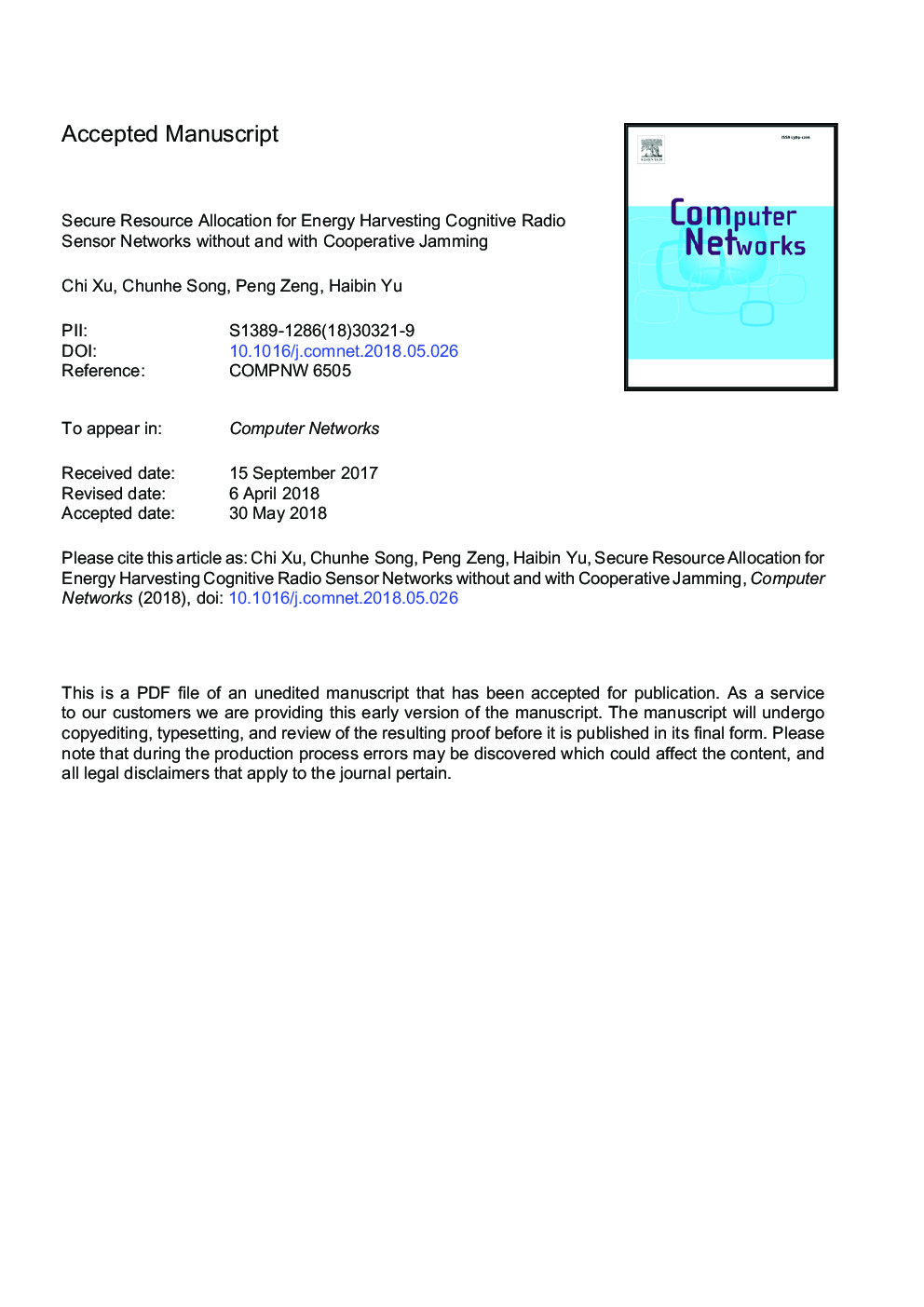| Article ID | Journal | Published Year | Pages | File Type |
|---|---|---|---|---|
| 6882638 | Computer Networks | 2018 | 28 Pages |
Abstract
This paper studies secure resource allocation for energy harvesting cognitive radio sensor networks (EH-CRSNs) underlaying a small cell network, wherein the small cell base station (SCBS) employs adaptive or fixed transmit power for cooperative jamming or not while serving cellular users (CUs). Correspondingly, cognitive sensors (CSs) first harvest energy from the RF signals of SCBS and then communicate with each other concurrently with CUs in the licensed cellular channel which is wiretapped by an eavesdropper. Fully considering the peak interference power at CUs and the energy causality imposed by energy harvesting and processing cost, we investigate two secrecy rate maximization problems for secure resource allocation. For EH-CRSNs without cooperative jamming, we first transform the original non-convex problem into a convex problem and then employ the primary decomposition method to derive the optimal harvesting time and power allocation, with which CSs can perform reactive secure resource allocation according to the instantaneous channel state and the setup of the small cell. For EH-CRSNs with cooperative jamming, we employ the iterative optimization method to optimize the charging time and power allocation, with which SCBS can perform proactive secure resource allocation according to the instantaneous channel state. Extensive simulations evaluate the performance of EH-CRSNs and validate the effectiveness of the proposed algorithms.
Keywords
Related Topics
Physical Sciences and Engineering
Computer Science
Computer Networks and Communications
Authors
Chi Xu, Chunhe Song, Peng Zeng, Haibin Yu,
